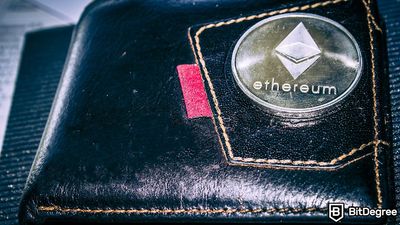Initially, MetaMask's new "Sell" feature will be available only to users in select countries.
MetaMask, a self-custody cryptocurrency wallet, has taken another step in expanding its offerings.
According to the announcement shared on September 5th, the crypto wallet now allows customers to sell Ether (ETH) for fiat, widening the scope of financial options for the wallet's extensive user base.

Did you know?
Want to get smarter & wealthier with crypto?
Subscribe - We publish new crypto explainer videos every week!
How to Invest in Crypto: 6 Rewarding Strategies (Animated)


In particular, this function will be available to users who have linked their crypto wallets to MetaMask's Portfolio decentralized app.
Upon the launch, the feature will be accessible to users in selected countries such as the United States, the United Kingdom, and some European nations.
It is worth noting that, in the announcement, MetaMask expressed plans to include more types of native gas tokens in this new function in the future.
This development is a follow-up to a feature launched five months ago, which enabled users to acquire a variety of cryptocurrencies via conventional financial means, including credit/debit cards, PayPal, and bank transfers. MetaMask had stated its aspiration to expand this purchase feature to include a broader range of tokens and make it available to a global audience.
However, it's not all smooth sailing for MetaMask. The wallet, a favorite among small-scale investors, has had its share of security challenges. Recent reports highlighted that fraudsters had exploited government websites across various countries, including India, Nigeria, Egypt, and others, to lure users into providing their personal details to bogus MetaMask platforms.
With its latest addition of the Ether-to-fiat conversion feature, MetaMask continues to enrich its suite of services, making the platform increasingly versatile for its users. As the platform grows in utility and popularity, users are urged to exercise caution, given the uptick in scam attempts targeting wallet users.






















